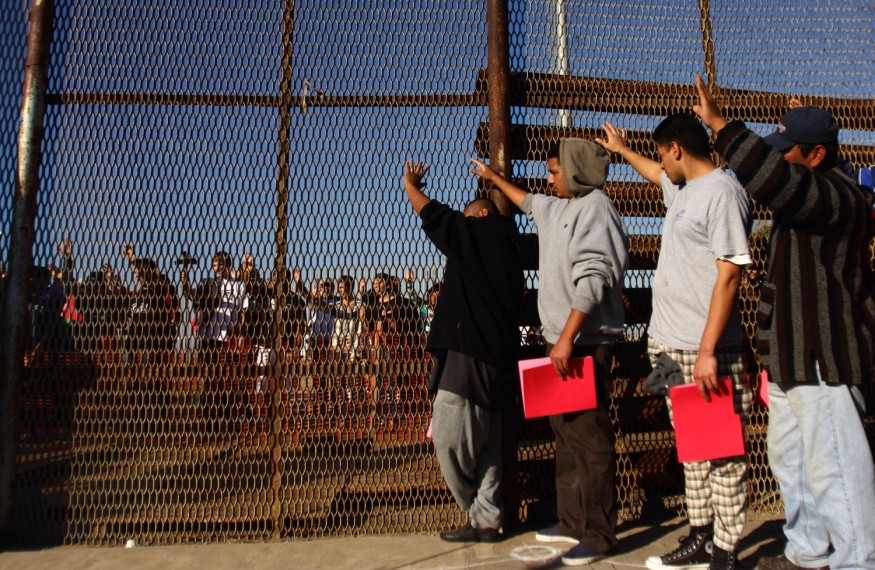Trump's Immigration Policies Decrease Illegal Border Crossings

The new immigration policies of President Donald Trump's administration that require asylum seekers to stay in Mexico while their application of asylum is still on court hearings, is effective. It helped to reduce the number of illegal crossings in the U.S.-Mexico border.
Yuma's Border Patrol sector arrested 14,000 in May who attempted to cross the borders when the policy took effect. According to the statistics cited by the Associated Press, attempts to cross the borders have fallen 94 percent since October or to around only 800. Since then, foreign nationals stayed in Mexico while waiting for the approval of their asylum application. This makes the Yuma sector the second slowest of the agency's nine sectors on the U.S.-Mexico border.
Anthony Porvaznik, Chief of the Border Patrol's Yuma sector, said that there are several reasons for the recent drop in illegal border crossing. Based on the agent's interviews with the people arrested, the so-called Migration Protection Protocols have been a big factor and a huge deterrent.
Porvaznik said in an interview, "Their whole goal was to be released into the United States, and once that was taken off the shelf for them, and they couldn't be released into the United States anymore, then that diminished the amount of traffic that came through here."
Meanwhile, the arrests in the neighboring Tucson sector has increased from August to December. This makes the Tucson sector the second-busiest corridor after Texas's Rio Grande Valley. According to Porvaznik, the increase of arrests at the Tucson border each month can be attributed to the late implementation of the policy.
Moreover, 10 months after the policy took effect in San Diego, there were more than 55,000 asylum seekers who were returned to Mexico while awaiting their hearings through November.
According to Syracuse University's Transactional Records Access Clearing House, immigrants were from more than three dozen countries and nearly two out three were Guatemalans and Hondurans.
Despite the success of Trump's administration to decrease the number of illegal border crossers, critics said that the policy was unfair and it only exposed asylum-seekers to extreme violence in Mexican border cities.
Subsequently, the American Civil Liberties Union and other groups have asked to put the policy on hold during a legal challenge. On Oct.1, the U.S. 9th Circuit Court of Appeals heard the arguments, but have yet to indicate a decision.
Moreover, critics won a separate lawsuit they filed when a federal judge in San Diego said that asylum-seekers sent back to Mexico from California deserved to have access in hiring lawyers before and during key interviews to determine if they could stay in the country while hearing their cases.
However, asylum-seekers in Yuma have been held in short-term cells until space opened up to be returned to Mexicali through a neighboring California sector. Even though illegal crossings in Yuma have dropped, asylum-seekers still need to sign up on a waiting list to enter the country at an official crossing in San Luiz, Arizona.
U.S. Customs and Border Protection has called the managing list a way to determine how many asylum-seekers process their application each day. The shelter estimated that the waiting period is three to four months.
Subscribe to Latin Post!
Sign up for our free newsletter for the Latest coverage!
© 2026 Latin Post. All rights reserved. Do not reproduce without permission.















